Something happened to me on the morning of November 9th of last year. I felt so sad not just as a private citizen but as a faith leader.
I felt so sad for what our newly elected administration would mean for the rights of people of color, immigrants, women or any minority groups for that matter.
I felt so sad for what this new administration would mean for America's peaceful relationship with our global neighbors.
I felt so sad for how the Bible would continue to be misinterpreted to support a theology of nation over liberation and care for all the citizens of the world.
While many of you who also felt this way have found yourself doing more marching, more letter writing, or more organizing over the last six months, a desire bubbled up in me to return to a familiar place.
On November 9th, I told a dear friend, Amanda that post-election I needed to preach. Not just in the ways that I was already engaged in (and enjoyed!)-- through short-term interims and supply preaching-- but I needed preach to a particular congregation.
Who was in the White House became for me a heard calling for "all preaching voices on deck." My colleagues and I talked a lot about what it meant to preach in times like this. AND I could not not be one of these voices. I could not shy away from speaking up even when it was unpopular. I could not keep from leading toward hope. I could not hold any good news for living in days like this to myself.
But here's the thing. I knew I'm not a traditional pastoral candidate.
Different from when I began this ordained vocational journey over 10 years ago and immediately pursued a full-time position, I am not the kind of pastor that could give one congregation all of my work anymore. My soul thrives in diversity of tasks.
There's other callings on my life too whose nudges are equally as important to me as preaching.
Callings like being a writer. Promoting books like I just wrote, Birthed and new books to come!
Callings like being an advocate for children growing up in children's homes internationally. Raising funds for scholarships through the foundation, Our Courageous Kids, that I lead with the help of some great board members.
Callings like being a wife and mother and a friend. Making time for playdates and movie dates and long lunches where I believe the best conversations happen.
And a calling to not do it all, all the time. Sometimes our passions need to be put on the back shelf for a season so that another passion can shine.
Not willing to budge on calling, I knew I would not be a fit for most churches.
(And, I would never ask a church to accept anything less than they need. Most congregations believe they want full-time minister or at least a part-time minister who is full-time available. Yet, that's not my scene. It's ok to not be what someone needs.).
I was wondering how it would all turn out. Especially as my calendar continued to fill with short-term assignments that I enjoyed very much.
I was very content. BUT, here's the news:
I accepted the position of Senior Pastor of Palisades Community Church in Washington, DC.
This Preacher on the Plaza has a new plaza where you can find her most weeks beginning on September 5th. Palisades is a lovely walking community just outside of the Georgetown neighborhood. 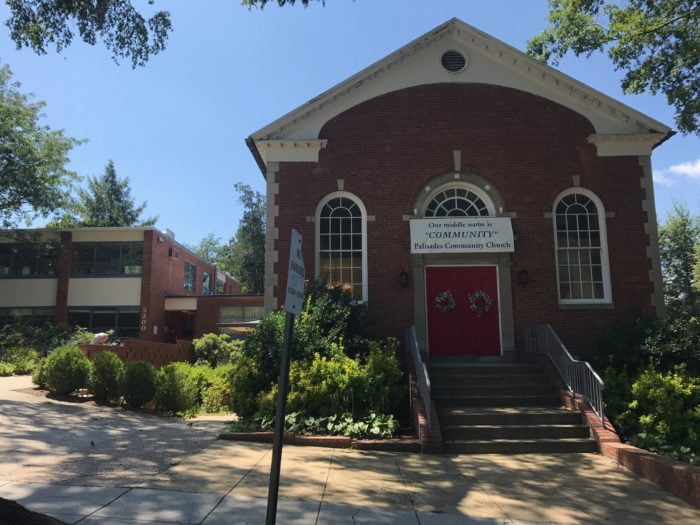
I want you to know that I said "YES" to this invitation to preach and lead because it wasn't lost on me that this was a parish in Washington DC proper. Proximity matters.
I want you to know I said "YES" because Palisades Community Church is theologically and denominationally in the camp I find myself most comfortable these days-- ecumenical, progressive and with liturgy that looks a lot like a merge of the best mainline Protestant traditions. It's a congregation where gay, straight, young, old, believing or doubting are welcome. And this is how I know how to do church.
I also want you to know I said, "YES" because of how our relationship began with one another. I felt accepted right away. I did not hide the other callings in my life during the interview process. I told them that my child would need a nursery every week and times might come when my husband needed me to support his work in other places. And they said, "Great! We think your other work will enrich our life together."
So on we go together this fall. I'm excited to see how our congregation can grow in community with each other. I'm excited to welcome in more of our neighbors. I'm excited to see how the weekly texts lead me to preach.
Journeying with God is most certainly full of surprises, just as I wrote about last week. And I am continuing to learn how to talk about and lean into this surprise. Most of all, I'm glad for it.
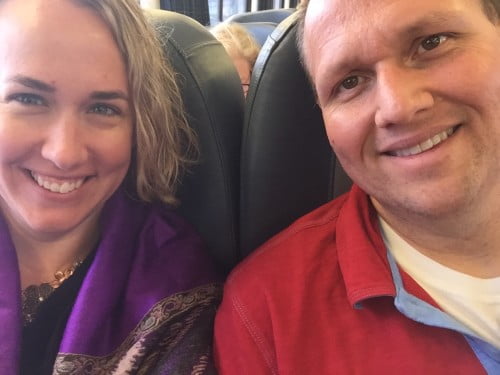 Life in the Hagan household is on the move!
Life in the Hagan household is on the move!
Last week, I was able to join Kevin in representing the American Diabetes Association (ADA) at the European Association for the Study of Diabetes Meeting (EASD) in Stockholm, Sweden.
At meetings like this, I continue to learn so much about how this ruthless diabetes can be and how it affects so many people and their families worldwide. And I have the opportunity to meet partners, donors and researchers who are doing everything they can to bring hope to those who suffer from diabetes.
I’m so glad to be on board for this great adventure of leadership and advocacy and glad to lend my voice to be supportive in any way I can.
But you know me; I can’t just go somewhere without thinking about questions of faith and life in community. So this week’s edition of “Preacher on the Plaza” takes place in Stockholm.
Here are two big takeaways from my travels last week:
There’s an impression, I believe, that many American church goers have about the church in places like Sweden. We see pictures of large cathedrals with empty pews and think Europeans have long left faith behind. We think that no one in this region believes in God anymore.
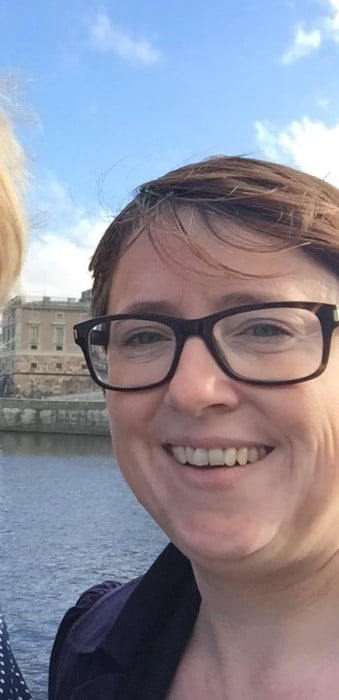
Yet, there’s always more below the surface than we realize, isn’t there?
Thanks to connections through an organization called The Young Clergy Women’s Project (TYWCP) I made a new friend, Jenny.
Jenny, a resident from the Stockholm area and a Lutheran pastor, graciously spent time with me on her day off last Tuesday and gave me a “local” tour of the city.
I loved meeting her not only because it’s always lovely to connect with other female clergy but for the opportunity to gleam wisdom about her experience of ministry.
Over the course of our afternoon together, Jenny told stories with me about her church’s social ministries and her work in bridging gaps of ecumenical conversations throughout the region.
She contradicted the stereotypes about her country. Saying that while the pews might not be full on Sunday morning, hundreds of folks are connected to the church life throughout the week. Programs like play groups for moms of young children or education forums on spiritual topics DO draw people to the local church.
Residents of this city, do believe in God and want to know more, especially at pivotal moments like births and deaths.
And, she told me story after story of conversations she has a regular basis with faith seekers.
It was exciting to hear that female clergy are leading the way! In fact, over 40% of the clergy in the Lutheran church in Sweden are now women. Hooray!
So many of us have all seen the stories about the mass exodus of Syrian refugees, one of the worst humanitarian crises in years.
We’ve watched the news clips of mothers and children screaming and fathers fighting back. We’ve been horrified by the actions of nations like Hungary, refusing to take in refuges at their boarders.
But in the US, it’s easy to feel so far away from the problem. It’s easy for even the most compassionate of us to think, “These are not my neighbors” and move on to something else.
But on the plazas of Stockholm, I saw the refuge crisis first hand. As I traveled each day through the Central Train Station in Stockholm, I saw scenes like this:
Actual Syrian refuges and the Red Cross volunteers trying to do anything they could to help bring aid.
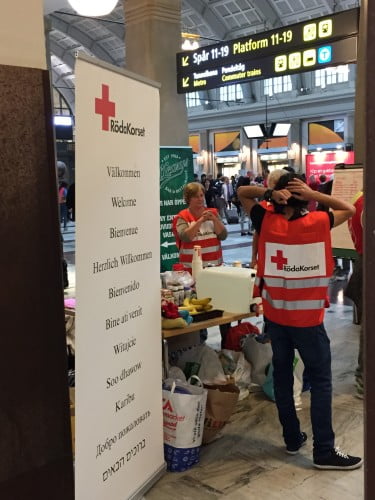
Every morning and afternoon, I watched as the Red Cross folks handed out bottled water, medical aid and fresh fruit and other snacks to displaced people of all ages. Most were without good night’s rest, proper nutrition or the feelings of safety in over a month. Many sought asylum in Sweden but faced difficulties due to the complex system of who can take in who that is now being worked out right now by the European Union.
As I looked at their faces, I couldn’t help but wonder what more I could do besides giving to organizations like the Red Cross.
But I think telling you about them and not forgetting what I saw last week is a start.
All in all what an eye-opening week! Thank you, plazas of Stockholm for your warm welcome and reminding me that the Spirit is always present no matter where we go. 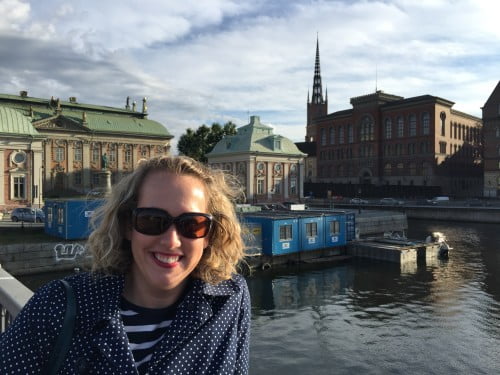
 When you go from being the associate pastor to the lead pastor in a congregation, there's one huge dynamic that changes. You pay close attention to the numbers on the membership roles.
When you go from being the associate pastor to the lead pastor in a congregation, there's one huge dynamic that changes. You pay close attention to the numbers on the membership roles.
Everybody wants to know is the church growing or isn't it? Everybody wants to know why so and so hasn't been to church in a while? And as the senior pastor you need to respond.
Here's the secret I want to let you in on today: when you leave a local church, it hurts the pastor's feelings.
Even if the reason cited by the leaving congregant has nothing to do with me, I feel responsible every time it happens.
These are some of the reasons I've heard:
1. I am too spiritual for the church. (Yes, people really admit this!)
2. I don’t need a community to live out my faith.
3. I’d rather pray at home and do yoga.
4. I travel so much for work and fun. Considering all the time I’m gone it just doesn’t seem worth it to come during the couple of times a year that I am around.
5. I don’t like ____ person. I can’t come to the same worship space as them. I’ve been hurt. I will not come back. Reconciliation . . . that is out of the question.
6. My life is just too hard right now. I can’t be a part of a community. I need space. Lots of space.
7. This ____ project at church didn’t turn out like I hoped it would. Since I didn’t get my way, I can’t come back. It’s too embarrassing.
And the list could go on.
At this juncture, the direction of this blog post could go several ways.
I could pout. I could put down those who leave. I could strive to make comments about the state of American religion and the dying mainline church.
I could tell you to read a lot of Diana Butler Bass who says things like: “Although churches seem the most natural space to perform spiritual awakening, the disconcerting reality is that many people in Western society see churches more as museums of religion than sacred stages that dramatize the movement of God's spirit" in her book Christianity After Religion.
Or, I could propose some grand idea about how to reform the church so that such “I quit the church” declarations decrease.
But, I won’t do any of these things because I’m just not sure of these ideas are helpful.
The most helpful thing I know to tell the truth.
People are leaving church for no church.
But I don’t think this makes the church any less important in society.
For example, I do weddings and funerals all the time for those who are without a church who want to celebrate major life events in a holy space with a minister. When people find out I'm a minister, I'm asked to enter into spiritually focused conversations all the time. Folks show up at the door my church almost every week asking for assistance with food or desiring prayer and most all of them aren't members of my congregation.
I don't think that folks are searching spiritually any less than in 2015.
They are just finding what they want outside our walls.
So what does that say about what we are doing inside?
 In my life, I've seen the pastor/ congregational relationship from many different angles:
In my life, I've seen the pastor/ congregational relationship from many different angles:
In these situations, I've heard a lot of stories that begin: "Please don't be like our last pastor that . . ."
I've heard a lot of "Well, I'm not sure why ___ went into the ministry."
I've heard silence from pastors who I reached out to pastor me, pastors who didn't return my emails or remember my name during the 10th time I introduced myself to them.
Though we often say (especially in the free church tradition) that all members are ministers, who the pastor is really does matter.
Pastors shape the character of local congregations. Pastors set the tone for congregational life. Pastors can define and easily create conflict in communities where there was none.
So, in the spirit of the good work of pastors going forth into the world, here's 4 things that I believe every congregation needs from his/her pastor. He or she must:
When a pastor is called to a local church, he/ or she needs to love its people (or learn to love them) quirks and all. Pastors model unconditional love to all kinds of people: the homeless man on the steps, to the woman dying of cancer in hospice, and the loud mouthed teenager we'd really wish didn't sign up for the overnight retreat.
Of course, there are some days we won't like the people in our mix. But as in a marriage, we always end the day in love. Love that hopes. Love that protects. Love that believes the best is still yet to be.
This is what I most want to say: congregations KNOW when we don't love them. And, no amount of god-speak can cover up lack of true emotional connection. So, if we don't have a heart that wants to grow in love of people in particular place, we really don't need to find another job.
It always amazes me when people become pastors and then are shocked to learn that visitation is part of the vocation.
"Oh, I really have to go visit shut ins? Oh, I really have to make hospitals? Oh, I really need to call regular visitors to introduce myself?"
YES YOU DO.
Pastors are care-givers of people in ordinary times, in joy and crisis.
In my experience, congregations will forgive a multitude of boring sermons and missteps in committee meetings, when they've seen us around their supper table.
Sermons are holy moments, folks. We shouldn't take our opportunities to climb into the pulpit on a regular basis lightly.
Where else do a group of committed people gather in community weekly to hear a word about an ancient text? Few places other than the church! And, people don't just come to church anymore to check a box. Most people who give up sleep on Sunday mornings, want to hear something of meaning from the proclaimer.
So why do we, as pastors, think that we can serve up ill prepared homilies week after week after week with nothing more than cute stories or pre-packaged sermon fodder we found on the internet?
Sure, not every pastor's strength is the proclaiming moment. And this is ok (see point 1). But every pastor can try. We can honor calling by starting our sermons preparation earlier than the night before. Every pastor can make an effort to present something of value.
Of course, we as pastors aren't super humans. There will be times when will disappoint. Maybe even lots of times . . . We'll forget somebody's birthday. We'll offend the church council member with the most seniority. We'll forget to make an important phone call. But, even in our imperfection, we need to be known as leaders who follow through with our commitments, more times than not. Basic curtesies like:
Answering emails.
Having conversations, even the hard ones.
Sending thank you notes.
Most of all, people need to see that we're the real deal. We love Jesus. And out of our love of Jesus, we do what we do.
What things would you add to the list?
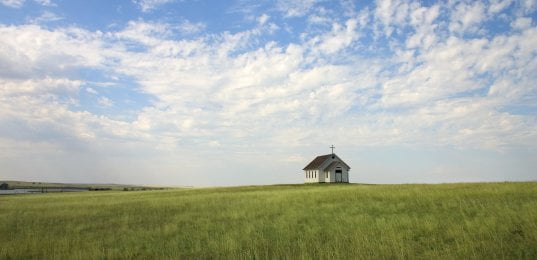 I was taught in seminary that the most virtuous thing you can do for your whole life is to serve the church with an undivided heart. "The church needs you!" my classmates and I were told over and over again.
I was taught in seminary that the most virtuous thing you can do for your whole life is to serve the church with an undivided heart. "The church needs you!" my classmates and I were told over and over again.
Sometimes our instructions included more details like this: “Take care of the church like nothing else matters. Live in the community where you serve, join every local board you can, and know your neighbors. Those who give their whole life to the church will not be disappointed."
And I tried. I really tried to become the best local church pastor I could be. I attended neighborhood meetings. I sat at the bed of the sick. I climbed into the pulpit week after week. And for a while it was my calling.
I wanted to fit into the one-size fits all church box forever. I wanted to come back to my 30-year Duke Divinity School reunion and tell stories about the pastoral life just like I'd heard out of my beloved professor, Dr. William Quick.
But after six years in full-time church ministry I found that I could not-- even as much as my heart really wanted to. My time was up.
Walking away from what I once felt was my dream job (as a solo pastor in the Baptist tradition) last Christmas became one of the hardest decisions I ever had to make.
I heard recently that when newcomers ask the church I formerly pastored why I left they say that "She become a writer." While I’m flattered with being identified as a writer (and I love writing), this is not quite it.
Furthermore, the change had nothing to do with the lack of joy in little congregation as they were great people. Nor was it all about my husband’s job in another state. Or even about the grant I received from the Louisville Institute to write a book, though these reasons seemed like legitimate ones on the surface.
No, I left local church ministry last year because I was finally ready to say yes to a calling. I was ready to be a nobody (if that is what folks thought of me) in order to be the somebody that I really am.
Right now, I am following that calling (though the "what do you do?" questions at parties now are harder to answer).
In the world from which I came both as a child of a pastor and also of a local church pastor making seminary-- to leave the church for something else felt to me like treason.
But in the past several years, I come to believe that being a whole person is much more important than a respectable career even if you have to feel like an outcast upon leaving. I took some cues from Barbara Brown Taylor here.
And for me to be a whole person, this is what I know:
I am not made for a job or type of job that lasts me my entire career.
I am not made to immerse myself into a particular local church community for a long time.
I am not made to just do one thing all the time or even just one thing at once.
I am not made for denominational life or ministry that values institution building over freedom of the Spirit.
Yet, with all of this said, I am made however for bolts of energy into new projects that need a leader.
I am made for community building with the global church.
I am made to multi-task my way through a variety of vocational pursuits that often on the surface seem like they have nothing to do with each other, but actually do!
I am made to speak the truth about systems that are broken.
And in all of this, I still feel ordained. I've not stopped being Rev. Hagan. I still feel like I’m in ministry.
I’m a writer sometimes.
I find myself in pastoral care conversation sometimes.
I’m a preacher sometimes.
I’m a strategist for creating community both in person and online sometimes.
I’m an administrator sometimes.
I do the laundry all the time. And I make dinner most of the time.
I'm thankful for the chance to do all of this "outside the church" but never too far from its larger mission.
And it fits. It really fits. The restless whispers of my heart have stopped yelling at me. I'm finally at home.
I feel settled even as pace of our current travels and activities make my family’s head spin when I inform them what I'm up to.
In this non-traditional life, I am happy. Truly I am.
I love supporting the communications department of Feed The Children. I love writing in a variety of different venues. I love having quality time for friends. I love traveling alongside my husband. I love preaching in settings (like next week in Hawaii!) that a local church schedule would normally not allow. I love that I have the freedom to find God both in and outside the church walls on Sunday morning-- depending on the week.
Lesson learned: when the whispers come, listen. I’m so glad I did. I hope I have the courage listen sooner next time. It’s ok to be different. Actually it is really wonderful even if some of my friends in the church don't understand.